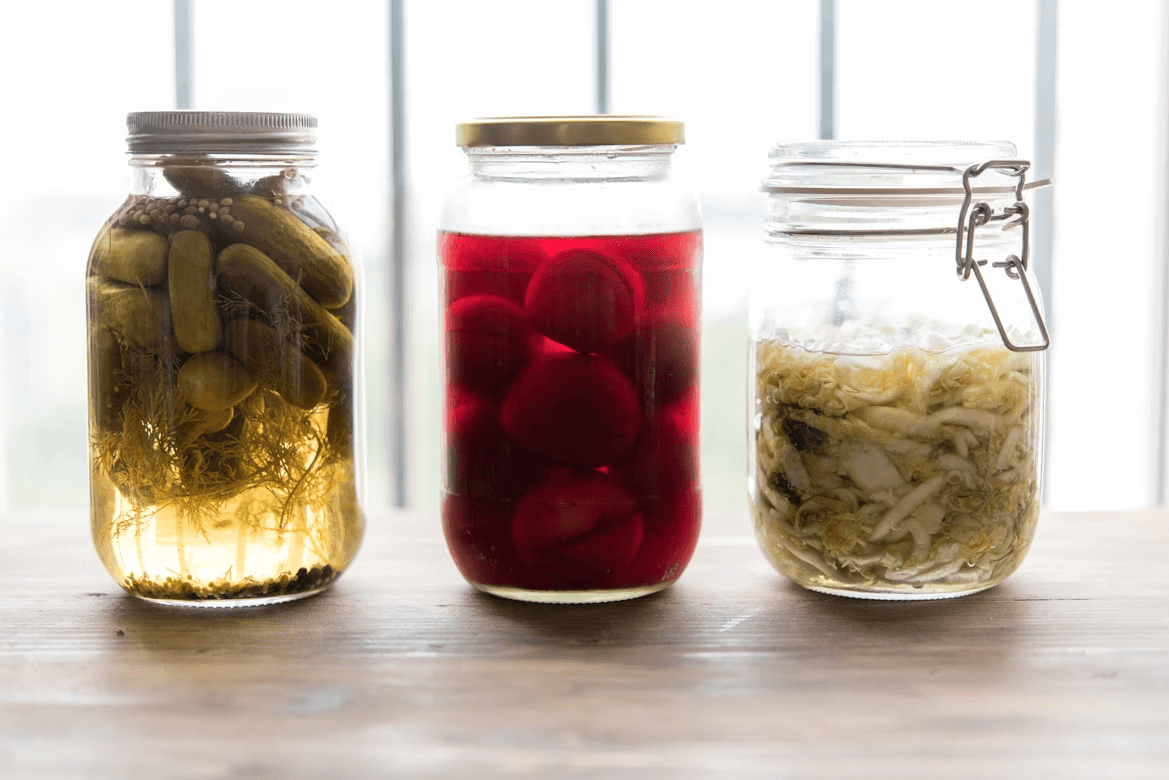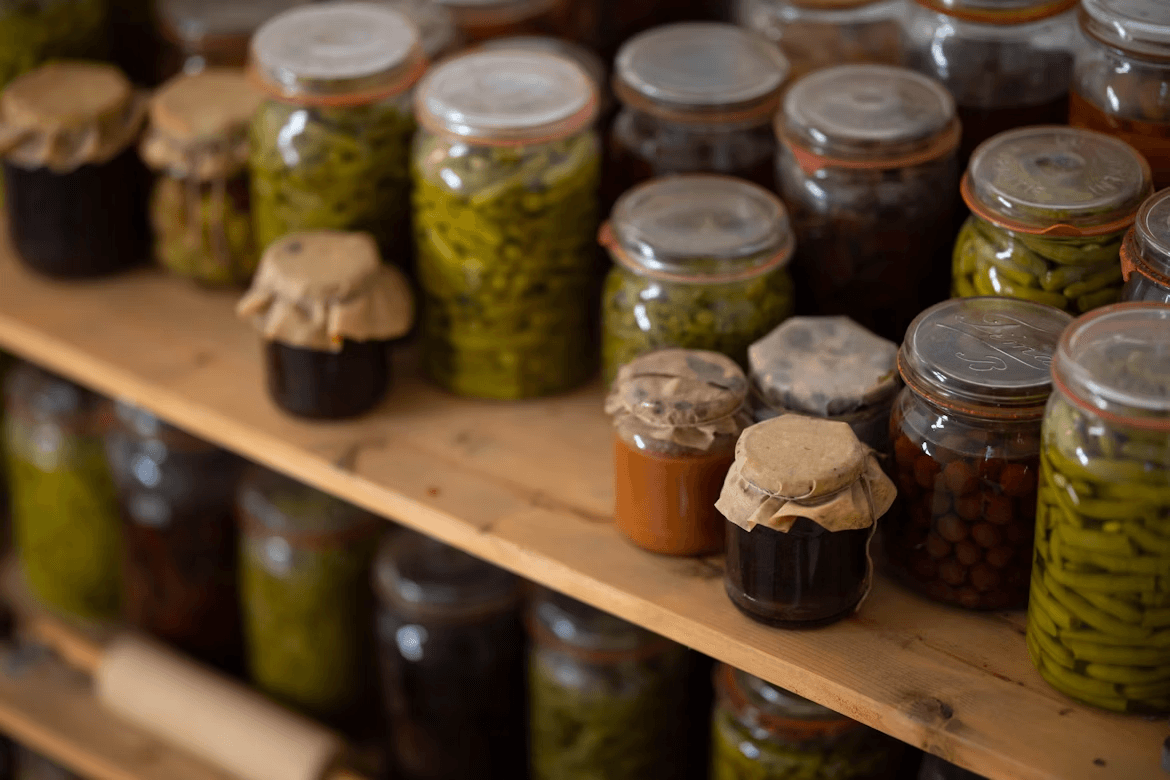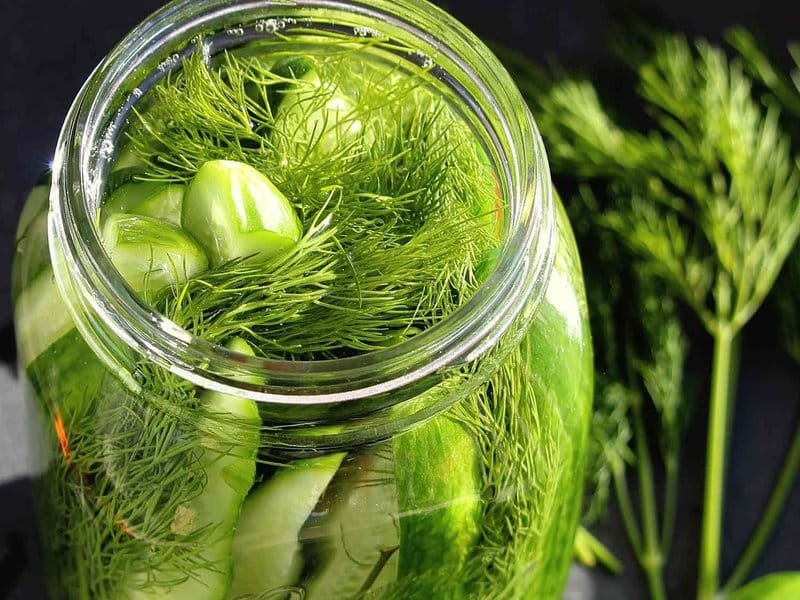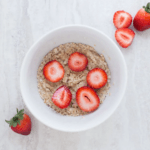Key Insights into Gluten-Free Pickles
- Vinegar is Key: Most pickles use naturally gluten-free vinegars like distilled white, apple cider, or rice vinegar. However, always watch out for malt vinegar, which contains gluten.
- Label Vigilance: The safest bet is to look for pickles explicitly labeled “gluten-free” or certified by a third party to avoid hidden ingredients or cross-contamination.
- Trusted Brands Abound: Many popular brands, including Boar’s Head, Bubbies, Grillo’s, and Mt. Olive, offer clearly labeled gluten-free options, making your choice easier.
While the core ingredients of most pickles are naturally devoid of gluten, understanding the nuances of manufacturing and ingredients is essential for ensuring a truly safe snack. This comprehensive guide will equip you with all the knowledge you need to confidently enjoy pickles as part of your gluten-free and dairy-free diet.
At their heart, pickles are a simple creation: cucumbers preserved in a flavorful brine. The fundamental ingredients typically include: - Cucumbers
- Water
- Salt
- Spices (such as dill, garlic, mustard seeds, peppercorns)
- Vinegar (or natural fermentation)
Cucumbers, water, salt, and most common pickling spices are inherently gluten-free. The critical element that dictates a pickle’s gluten status is the vinegar used, or the method of fermentation.
The Vinegar Factor: A Crucial Distinction
The type of vinegar found in pickles is the most significant determinant of whether it contains gluten. Most commercially available pickles in the United States rely on vinegars that are typically gluten-free:
- Distilled White Vinegar: Often made from corn or other gluten-free sources, the distillation process effectively removes any gluten proteins, making it safe.
- Apple Cider Vinegar: Derived from apples, this vinegar is naturally gluten-free.
- Rice Vinegar: As the name suggests, this is made from rice and is also gluten-free.
However, there’s one notable exception:
Malt Vinegar: This vinegar is made from barley malt, a grain that contains gluten. Therefore, any pickle product listing malt vinegar in its ingredients is not gluten-free and should be avoided by individuals with celiac disease or gluten sensitivity. While some regions, like the UK, have different standards regarding trace gluten in fermented products, the stricter U.S. standard of less than 20 parts per million (ppm) for “gluten-free” certification means malt vinegar-based products are generally unsafe for a gluten-free diet.
Beyond Vinegar: Other Considerations for Safety
Even if the vinegar is safe, a few other factors can influence a pickle’s gluten-free status:
Additives and Flavorings
Occasionally, commercial pickle brands might incorporate additional flavorings, thickeners, or preservatives that could inadvertently contain hidden gluten. This is less common but warrants a quick glance at the ingredient list, especially for highly processed or uniquely flavored varieties.
Cross-Contamination Risks
For individuals with celiac disease or severe gluten sensitivity, cross-contamination is a legitimate concern. This occurs when pickles are processed on shared equipment or in facilities that also handle gluten-containing foods. Even if the ingredients are gluten-free, trace amounts of gluten could be introduced. Brands that explicitly label their products “gluten-free” or are certified by a third party have taken steps to minimize this risk, adhering to the less than 20 ppm gluten standard in the U.S.
Naturally Fermented Pickles
Some pickles are made through a natural fermentation process, using a salt-water brine rather than vinegar. These traditional methods are generally gluten-free, as they rely on beneficial bacteria to preserve and flavor the cucumbers. Bubbies pickles are a prime example of a brand utilizing this method, and they are certified gluten-free.
When selecting pickles, prioritize those with clear “gluten-free” labeling. This provides the highest assurance of safety for your dietary needs.
Navigating the Market: Top Gluten-Free Pickle Brands
The good news is that many reputable brands understand the importance of gluten-free options and clearly label their products. Here are some widely recognized brands known for offering gluten-free pickles:
| Brand Name | Gluten-Free Status & Key Features | Notes for Consumers |
|---|---|---|
| Boar’s Head | All pickles are gluten-free. | Reliable choice across their entire pickle range. |
| Bubbies | All products are gluten-free, naturally fermented with salt water brine, and manufactured in a gluten-free environment. | Excellent choice for traditional, fermented pickles. |
| Grillo’s Pickles | Certified Kosher, vegan, and gluten-free, made with simple, high-quality ingredients. | Known for fresh, crisp taste and clean ingredient list. |
| Mt. Olive | Many products, including “Simply Pickles Kosher Dills,” are certified gluten-free and vegan. | Explicitly labels gluten-free options. |
| Van Holten’s | Their pickle products, including pouch pickles and freeze pops, are gluten-free. | Offers diverse pickle products, all clearly labeled. |
| Rick’s Picks | Offers gluten-free certified options like Classic Sours. | Focuses on unique flavors and quality ingredients. |
| Best Maid & McClure’s | Known for using non-gluten-grain vinegars. | Good options to check for specific varieties. |
| OH SNAP! | Dilly Bites and Hottie Bites are readily available and labeled gluten-free. | Convenient, on-the-go snack options. |
Enjoying Pickles in Gluten-Free Recipes
Pickles are incredibly versatile and can elevate a wide array of gluten-free and dairy-free dishes. Their tangy crunch makes them a fantastic addition beyond just a burger topping:
- Salads: Dice them into potato salad, macaroni salad, or coleslaw for a zesty, refreshing kick. Don’t forget that many relishes are also gluten-free.
- Sandwiches and Wraps: A classic pairing for gluten-free sandwiches and wraps, adding moisture and flavor.
- Appetizers: Fried pickles, made with gluten-free flour, can be a delightful appetizer. You can also make simple cream cheese stuffed pickle bites.
- Dips: Dill pickle dip, often made with plant-based ingredients, provides a creamy, flavorful gluten-free and dairy-free option.
- Soups and Stews: Some unique recipes, like Polish Dill Pickle Soup, can be adapted to be gluten-free, adding a distinctive tang.
Making Your Own Gluten-Free Pickles
For ultimate control over ingredients and to eliminate any cross-contamination concerns, making your own pickles is an excellent option. All you need are fresh cucumbers, gluten-free vinegar (like distilled white or apple cider vinegar), salt, water, and your favorite spices. This method guarantees a truly gluten-free and dairy-free product.
Take This With You..
Navigating a gluten-free lifestyle doesn’t mean sacrificing the tangy, satisfying crunch of pickles. With a bit of label reading and an understanding of key ingredients like vinegar, you can confidently include this versatile snack in your diet. Brands are increasingly catering to gluten-free needs, offering a wide array of safe and delicious options. Whether you prefer classic dill, sweet bread and butter, or spicy kosher dills, rest assured that a gluten-free pickle is readily available for your enjoyment. Embrace the freedom of informed choices and let every bite be a moment of pure, worry-free delight!
Frequently Asked Questions (FAQ)
Are all pickles automatically gluten-free?
No, while most are, you must avoid pickles made with malt vinegar, which contains gluten. Always check ingredient labels carefully.
Can people with celiac disease eat pickles?
Yes, individuals with celiac disease can safely eat pickles, provided they are explicitly labeled “gluten-free” and do not contain malt vinegar or other gluten-containing additives. Look for certification.
Is dill pickle relish gluten-free?
Generally, yes, dill pickle relish is gluten-free, as its base ingredients are similar to pickles. However, it’s always prudent to check the label, as some relish products may contain additional ingredients.
Do naturally fermented pickles contain gluten?
No, naturally fermented pickles typically use a salt water brine and do not involve gluten-containing grains. They are generally considered a safe, gluten-free option.
Can I eat fried pickles on a gluten-free diet?
Yes, if the pickles themselves are gluten-free and the breading or batter used for frying is made from gluten-free flours (e.g., rice flour, cornmeal, gluten-free all-purpose flour). Many gluten-free recipes are available for this popular snack.




